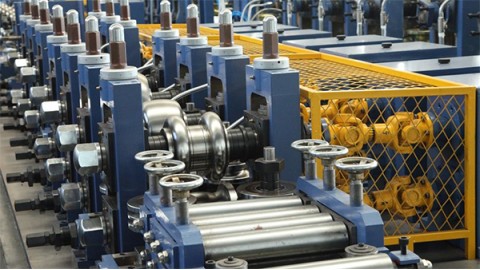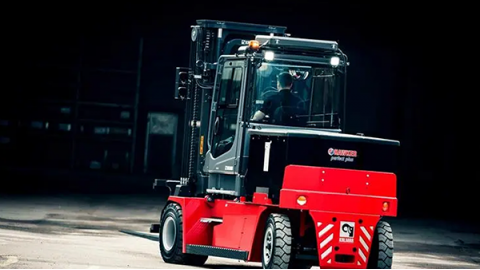Top 10 Storage Equipment Manufacturers

Introduction
The storage equipment industry is a critical sector. It supports global logistics, retail, and manufacturing operations. Storage equipment is the physical infrastructure used to organize, protect, and retrieve materials. This happens in warehouses, distribution centers, and manufacturing facilities. Efficient storage solutions directly impact inventory accuracy. They also affect order fulfillment speed and overall supply chain resilience. Technological advancements and e-commerce growth are key drivers. They create demand for more sophisticated and automated storage systems. This article evaluates top manufacturers. The evaluation is based on innovation, global reach, and product diversity.
Criteria for evaluating Storage Equipment Manufacturers
We use specific criteria to rank the top manufacturers. The breadth of the product portfolio is essential. It ranges from simple shelving to complex automated retrieval systems. Innovation and investment in research and development are crucial. We focus on software integration, robotics, and IoT connectivity. Global footprint and market share are also important. This includes manufacturing facilities, distribution networks, and a multinational client base. The depth of industry-specific solutions is a key factor. Examples are cold chain storage, e-commerce fulfillment, and automotive parts organization. Sustainable practices matter. These include using recycled materials and energy-efficient designs. Customer support and service offerings are vital. They cover installation, maintenance, and training. Industry certifications and awards indicate quality and social responsibility.
Leaders in Automated Storage and Retrieval Systems (AS/RS)
Some manufacturers specialize in Automated Storage and Retrieval Systems (AS/RS). An AS/RS is a computer-controlled system. It automatically places and retrieves loads in a warehouse or facility. Dematic integrates robotic shuttles, stacker cranes, and sophisticated warehouse execution software. Toyota Advanced Logistics offers systems based on autonomous mobile robots. Their solutions also use AI-driven inventory management. Kardex Remstar excels in vertical lift modules and vertical carousel systems. These maximize space utilization. Hänel focuses on energy-efficient rotating systems and Lean-Lift systems. System Logistics provides custom automated solutions. They serve industries like food and beverage. These systems boost accuracy and throughput. They also reduce reliance on manual labor.
Top Suppliers of Heavy-Duty Industrial Storage and Racking
Other companies manufacture rugged storage solutions for heavy-duty applications. Industrial racking refers to structures designed to carry heavy loads. These loads include pallets and bulk materials. Ridg-U-Rak specializes in custom pallet rack, drive-in rack, and push-back rack systems. Steel King provides engineered rack, mezzanines, and structural decking. They focus on safety load ratings and OSHA compliance. Penco Products offers boltless shelving, wire decking, and locker solutions. Their products emphasize easy assembly. SSI SCHAEFER has a global scale. They provide a wide range of heavy-duty solutions. These include narrow-aisle racking and mobile shelving systems. AR Racking has a strong international project presence. They can provide seismic-resistant designs. Material selection is key. High-strength steel and powder coatings resist corrosion.
Innovators in Material Handling and Storage Integration
Some manufacturers offer products that go beyond simple storage. They provide a complete material handling ecosystem. Integrated material handling is a synergistic combination. It includes storage equipment, conveyors, sortation systems, and warehouse management software. Daifuku provides turnkey solutions. These include airport baggage handling systems, cleanroom storage, and e-commerce fulfillment centers. The KION Group owns brands like Linde Material Handling and Dematic. They offer a full range of solutions. This ranges from industrial vehicles to fully automated warehouses. KNAPP innovates with its Open Shuttle autonomous mobile robots. They also have pocket sortation systems for e-commerce. Vanderlande specializes in sortation and storage solutions. They serve the parcel and express industry. System integration is critical. It ensures storage equipment communicates seamlessly with conveyors, robots, and workstations. Many companies offer simulation and digital twin services. These optimize storage layouts and processes before installation.
Experts in Specialized and Custom Storage Solutions
Several manufacturers focus on specific niches or highly customized storage applications. Custom storage is designed for very specific spatial, access, or environmental needs. Lista International is a leader in heavy-duty drawer cabinets and workbenches. These are for tool rooms, workshops, and medical environments. Montel is famous for its SpaceSaver high-density mobile shelving systems. These are often used in archives, libraries, and hospitals. Spacesaver Corporation provides integrated high-density mobile storage systems. They maximize space in area-constrained zones. Averys has expertise in cleanroom-compatible storage solutions. They serve the pharmaceutical and healthcare industries. Equipto offers slotted shelving, workbenches, and modular structural decking. They place a special emphasis on flexibility and adjustability. These companies provide engineering and design consulting services. They create fully customized storage layouts.
Industry Trends and Future Outlook
Current and emerging trends are shaping the future of storage equipment manufacturing. The shift toward automation, robotics, and data-driven warehouse management is unstoppable. The concept of micro-fulfillment centers is growing. These are small, highly automated warehouses in urban areas. They enable rapid e-commerce delivery. Sustainability is now a major focus. Manufacturers use recycled steel. They design energy-efficient systems and create recyclable products. Modular and scalable storage solutions are on the rise. They allow businesses to expand or reconfigure easily. AI and machine learning are integrating into operations. They predict inventory needs, optimize storage layouts, and enable predictive maintenance. Augmented Reality (AR) is finding use in warehouse operations. It aids in order picking, training, and maintenance tasks. Future storage systems will evolve to handle autonomous logistics. They will also adapt to changing retail models.




